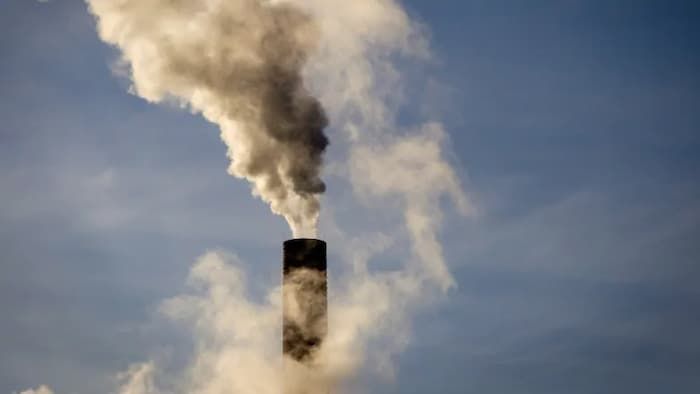The Ford government has asked the Supreme Court of Canada to rule on a constitutional appeal against its climate plan, despite a second victory against seven Ontario environmentalists. The young plaintiffs argue that the Progressive Conservatives' environmental policies were unconstitutional because they jeopardized their future in terms of health, safety and equality.
According to court documents obtained by the Canadian Press, the Ford government says this whole affair touches on an unresolved question of national interest
.
The province's intentions are understood to be that it wants the Supreme Court to determine whether the Charter imposes obligations on the provinces to combat climate change and, if so, to what extent such obligations will apply in the resolution. of the problem.
Open in full screen mode
The seven young plaintiffs are supported in their case by the Toronto law firm Stockwoods LLP and lawyers from the Ecojustice group.
Photo : - / Evan Mitsui
The highest court in the country has never yet ruled on this subject and the recent decision of the Ontario Court of Appeal on this subject has so far not satisfied either party.
After an initial failure, the seven plaintiffs asked the Court of Appeal to suspend the current law and order the Ford government to issue a new green plan based on science with a reduction in targets of at least 45%. broadcasts from the province.
Open in full screen mode
Alex Neufeldt, who owns a small dress rental business in Ottawa, is participating in the constitutional appeal against the Ford government.
Photo : CBC / Evan Mitsui
The government replaced the previous Liberal government's carbon cap-and-trade program in 2018 with a new green plan.
It hopes to reduce CO emissions by 30% by 2030.2 of the province compared to 2005 levels.
A lower court ruled that there was no scientific consensus on the measures that would be necessary to combat global warming, ruling in favor of the province.
The young plaintiffs, who are aged 16 to 28, then appealed the decision to the highest court in the province.
Bitter victory in the Court of Appeal
The Ontario Court of Appeal, however, refused last October to rule on their motion, but sent their case back to a lower court because it did not have jurisdiction to decide the dispute.
Given the seriousness of the case, the additional issues raised and the potential need for additional evidence, it would neither be in the interests of justice, nor practicable, for this court to assume the role of fact finder and that it carries out the analysis requested by the applicants
she declared.
The Court of Appeal nevertheless mentioned that the alleged violations of the Charter still remained to be proven in court, thus leaving open the possibility that the plaintiffs would win their appeal.

Open in full screen mode
The Ford government replaced the previous Liberal government's carbon market in 2018 with a new policy to fight climate change that is not ambitious enough for the plaintiffs' tastes.
Photo: The Canadian Press / Darryl Dyck
The conservative government prefers for the moment to seek the opinion of the Supreme Court rather than meet its seven adversaries before the Superior Court for a second match.
Its lawyers argue that climate change cannot be subject to arbitration by the courts and that only Ottawa can decide whether provincial targets are sufficient to reduce greenhouse gas emissions in Canada.
Global warming is, they say, a complex global problem that cannot be solved within Ontario's borders.
The lawyers add that Ontario's green plan does not otherwise impose any legal obligations on anyone and in fact only presents reasonable targets to be achieved in the province.
Finally, according to them, the Charter does not guarantee any right to the plaintiffs to demand specific targets for reducing greenhouse gases.








